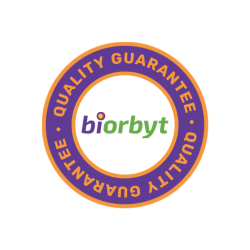You have no items in your shopping cart.
Cart summary

CCL2 Protein, Rat, Recombinant (His)
Catalog Number: orb1961454
| Catalog Number | orb1961454 |
|---|---|
| Category | Proteins |
| Description | Monocyte chemoattractant protein 1 (MCP-1), also called CCL2, is a member of the beta (C-C) subfamily of chemokines that is a chemoattractant for monocytes and basophils but not eosinophils or neutrophils. CCL2 binds the cognate receptor CCR2, and together this signaling pair has been shown to have multiple pro-tumorigenic roles, from mediating tumor growth and angiogenesis to recruiting and usurping host stromal cells to support tumor progression. CCL2 is found in the circulation, where it has been suggested as a diagnostic biomarker of breast cancer and prostate cancer. CCL2 can also induce arachidonic acid release in human monocytes, which has been shown to be involved in adhesion and induction of the chemotactic response, in a pertussis-toxinsensitive manner. |
| Tag | C-6xHis |
| Purity | 98.00% |
| Protein Sequence | Gln24-Asn148 |
| UniProt ID | P14844 |
| MW | 27-37 kDa (reducing condition) |
| Application notes | Reconstitute the lyophilized protein in distilled water. The product concentration should not be less than 100 μg/ml. Before opening, centrifuge the tube to collect powder at the bottom. After adding the reconstitution buffer, avoid vortexing or pipetting for mixing. |
| Expression System | HEK293 Cells |
| Biological Origin | Rat |
| Biological Activity | Monocyte chemoattractant protein 1 (MCP-1), also called CCL2, is a member of the beta (C-C) subfamily of chemokines that is a chemoattractant for monocytes and basophils but not eosinophils or neutrophils. CCL2 binds the cognate receptor CCR2, and together this signaling pair has been shown to have multiple pro-tumorigenic roles, from mediating tumor growth and angiogenesis to recruiting and usurping host stromal cells to support tumor progression. CCL2 is found in the circulation, where it has been suggested as a diagnostic biomarker of breast cancer and prostate cancer. CCL2 can also induce arachidonic acid release in human monocytes, which has been shown to be involved in adhesion and induction of the chemotactic response, in a pertussis-toxinsensitive manner. |
| Expression Region | Gln24-Asn148 |
| Storage | -20°C |
| Note | For research use only |
| Expiration Date | 6 months from date of receipt. |
Recombinant rat MCP-1 protein, GST & His [orb1516796]
> 45% as determined by SDS-PAGE
43 kDa
100 μg, 500 μgrMCP1 Protein [orb1471902]
Greater than 90% as determined by SDS-PAGE.
Sf9, Baculovirus cells
1 mg, 10 μg, 2 μgRecombinant Rat CCL2/JE/MCP-1 Protein, His Tag [orb1550787]
> 95% by SDS-PAGE.
Recombinant Rat CCL2/JE/MCP-1 Protein is produced by HEK293 Cells expression system. The target protein is expressed with sequence (Gln24-Asn148) of rat CCL2/JE/MCP-1 (Accession #NP_113718.1.) fused with a 6��His Tag at the C-terminus.
100 μg, 50 μg



